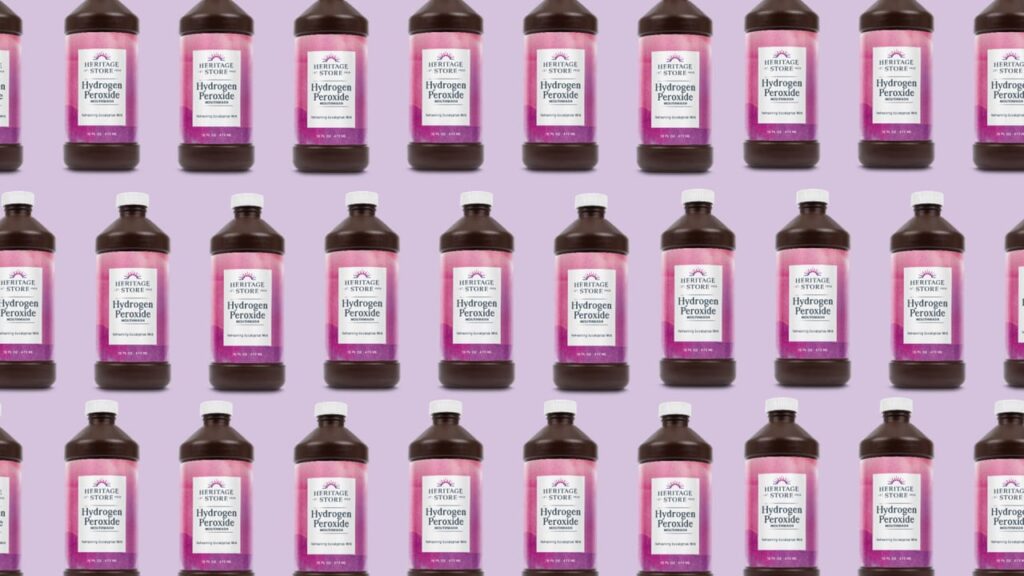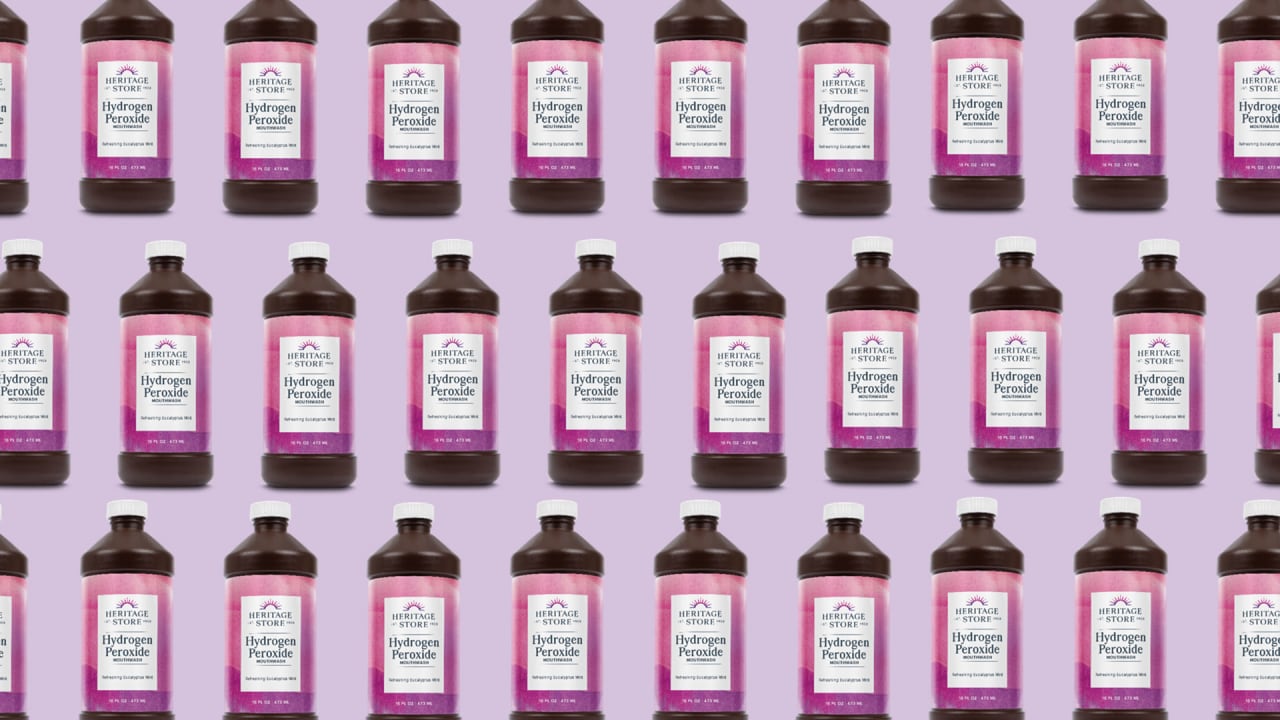
Hydrogen Peroxide Mouthwash: Understanding the Side Effects
Hydrogen peroxide mouthwash is a common over-the-counter antiseptic solution used to improve oral hygiene. While it offers several benefits, including whitening teeth and killing bacteria, it’s crucial to understand the potential hydrogen peroxide mouthwash side effects before incorporating it into your daily routine. This article delves into the various side effects of hydrogen peroxide mouthwash, helping you make an informed decision about its use.
What is Hydrogen Peroxide Mouthwash?
Hydrogen peroxide (H2O2) is a chemical compound widely recognized for its bleaching and disinfecting properties. In oral care, diluted hydrogen peroxide solutions are often used as mouthwashes to combat bacteria, reduce plaque, and even whiten teeth. The bubbling action of hydrogen peroxide helps dislodge debris and kill anaerobic bacteria that thrive in the mouth.
Benefits of Using Hydrogen Peroxide Mouthwash
Before discussing the hydrogen peroxide mouthwash side effects, it’s essential to acknowledge its benefits:
- Teeth Whitening: Hydrogen peroxide is a mild bleaching agent that can help lighten surface stains on teeth.
- Antiseptic Properties: It kills bacteria and helps prevent infections, especially after dental procedures.
- Reduces Plaque and Gingivitis: By eliminating bacteria, it aids in reducing plaque buildup and preventing gingivitis.
- Treats Canker Sores: Hydrogen peroxide can help cleanse and promote healing of minor mouth sores like canker sores.
- Freshens Breath: By killing odor-causing bacteria, it can help freshen breath.
Common Hydrogen Peroxide Mouthwash Side Effects
Despite the benefits, hydrogen peroxide mouthwash side effects are a concern for many users. Here are some of the most common:
Mouth Irritation
One of the most frequently reported hydrogen peroxide mouthwash side effects is mouth irritation. This can manifest as:
- Burning Sensation: A burning or stinging feeling in the mouth, particularly on the gums and tongue.
- Dryness: Hydrogen peroxide can dry out the oral tissues, leading to discomfort.
- Soreness: The mouth may become sore, especially with frequent or prolonged use.
Taste Alteration
Many users report a temporary alteration in their sense of taste after using hydrogen peroxide mouthwash. This hydrogen peroxide mouthwash side effect usually resolves quickly but can be unpleasant.
Tooth Sensitivity
Hydrogen peroxide can increase tooth sensitivity, especially to hot and cold temperatures. This hydrogen peroxide mouthwash side effect occurs because hydrogen peroxide can temporarily weaken the enamel.
Gum Irritation and Bleeding
While hydrogen peroxide can help reduce gingivitis, it can also irritate the gums, causing them to become inflamed and bleed. This is more likely to occur if the solution is too concentrated or used too frequently. If you experience persistent gum bleeding, discontinue use and consult your dentist.
Throat Irritation
Swallowing hydrogen peroxide mouthwash can lead to throat irritation. Although small amounts are generally harmless, it’s best to avoid swallowing the solution. Throat irritation is a notable hydrogen peroxide mouthwash side effect.
Black Hairy Tongue
Although rare, one of the more alarming hydrogen peroxide mouthwash side effects is black hairy tongue. This condition occurs when the papillae (small bumps) on the tongue become elongated and trap bacteria and debris, giving the tongue a dark, hairy appearance. This condition is usually temporary and can be resolved by discontinuing the mouthwash and practicing good oral hygiene.
Enamel Erosion
Prolonged and excessive use of hydrogen peroxide mouthwash can lead to enamel erosion. Enamel is the protective outer layer of the teeth, and its erosion can increase the risk of cavities and tooth decay. Always dilute the solution properly and avoid overuse to minimize this hydrogen peroxide mouthwash side effect.
Tissue Damage
Using a high concentration of hydrogen peroxide or using it for extended periods can cause tissue damage in the mouth. This can manifest as chemical burns or ulcers. Always follow the recommended dilution and usage guidelines to avoid this serious hydrogen peroxide mouthwash side effect.
Serious, But Rare, Hydrogen Peroxide Mouthwash Side Effects
While most hydrogen peroxide mouthwash side effects are mild and temporary, some rare but serious complications can occur:
Allergic Reactions
In rare cases, individuals may experience an allergic reaction to hydrogen peroxide. Symptoms can include rash, itching, swelling, and difficulty breathing. Seek immediate medical attention if you experience any signs of an allergic reaction.
Esophageal Perforation
Accidental ingestion of concentrated hydrogen peroxide can cause esophageal perforation, a life-threatening condition characterized by a hole in the esophagus. This is extremely rare but requires immediate medical intervention.
Air Embolism
In very rare instances, the bubbling action of hydrogen peroxide can introduce air into the bloodstream, leading to an air embolism. This is a serious condition that can cause stroke or heart attack.
How to Minimize Hydrogen Peroxide Mouthwash Side Effects
To minimize the risk of experiencing hydrogen peroxide mouthwash side effects, consider the following tips:
- Dilute Properly: Always dilute hydrogen peroxide with water according to the product instructions. A common dilution is 3% hydrogen peroxide mixed with an equal amount of water.
- Limit Usage: Avoid using hydrogen peroxide mouthwash more than once or twice a week, unless otherwise directed by your dentist.
- Avoid Swallowing: Spit out the mouthwash completely after rinsing.
- Rinse with Water: After using hydrogen peroxide mouthwash, rinse your mouth with plain water to remove any residual solution.
- Consult Your Dentist: Talk to your dentist before using hydrogen peroxide mouthwash, especially if you have sensitive teeth, gum problems, or other oral health concerns.
- Use Under Supervision: Children should only use hydrogen peroxide mouthwash under adult supervision.
Alternatives to Hydrogen Peroxide Mouthwash
If you are concerned about the potential hydrogen peroxide mouthwash side effects, consider alternative mouthwash options, such as:
- Fluoride Mouthwash: Helps strengthen tooth enamel and prevent cavities.
- Antimicrobial Mouthwash: Contains ingredients like chlorhexidine gluconate to kill bacteria and reduce plaque. [See also: Chlorhexidine Mouthwash Benefits and Risks]
- Saline Rinse: A simple salt water rinse can help cleanse the mouth and promote healing.
When to See a Dentist
If you experience any of the following hydrogen peroxide mouthwash side effects, consult your dentist:
- Persistent mouth irritation or soreness
- Gum bleeding that doesn’t stop
- Tooth sensitivity that worsens over time
- Black hairy tongue
- Signs of an allergic reaction
Conclusion
Hydrogen peroxide mouthwash can be a beneficial addition to your oral hygiene routine, offering teeth whitening and antiseptic properties. However, it’s important to be aware of the potential hydrogen peroxide mouthwash side effects. By diluting the solution properly, limiting usage, and consulting with your dentist, you can minimize the risks and enjoy the benefits. Always weigh the pros and cons to make an informed decision about whether hydrogen peroxide mouthwash is right for you. Understanding these hydrogen peroxide mouthwash side effects is key to maintaining optimal oral health.
Remember that while hydrogen peroxide can help with certain oral conditions, it is not a substitute for regular brushing, flossing, and professional dental care. Prioritize a comprehensive approach to oral hygiene for a healthy and confident smile. Awareness of potential hydrogen peroxide mouthwash side effects empowers you to use it safely and effectively.

